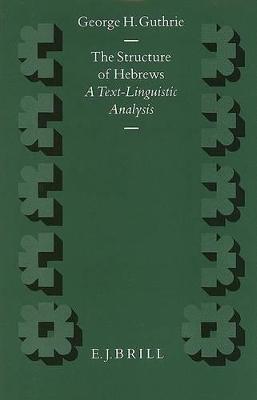Novum Testamentum, Supplements
1 primary work
Book 73
One of the focal issues surrounding contemporary studies of Hebrews concerns the book's elusive structure. This volume presents an examination of previous proposals and a fresh attempt at unlocking Hebrews' organizational principles.
The first part of the volume critically assesses past efforts at outlining Hebrews. Following a history of investigation, the various approaches to the structure of Hebrews are categorized and evaluated for both strengths and weaknesses. Methodologies considered include thematic analysis, literary analysis, rhetorical analysis, and linguistic analysis. Part two of the volume offers a texts-linguistic analysis of Hebrews, utilizing both modern linguistic theory and insight into ancient oratorical conventions.
This book presents advances in text-linguistic analysis and a compelling proposal concerning the structure of Hebrews.
The first part of the volume critically assesses past efforts at outlining Hebrews. Following a history of investigation, the various approaches to the structure of Hebrews are categorized and evaluated for both strengths and weaknesses. Methodologies considered include thematic analysis, literary analysis, rhetorical analysis, and linguistic analysis. Part two of the volume offers a texts-linguistic analysis of Hebrews, utilizing both modern linguistic theory and insight into ancient oratorical conventions.
This book presents advances in text-linguistic analysis and a compelling proposal concerning the structure of Hebrews.
